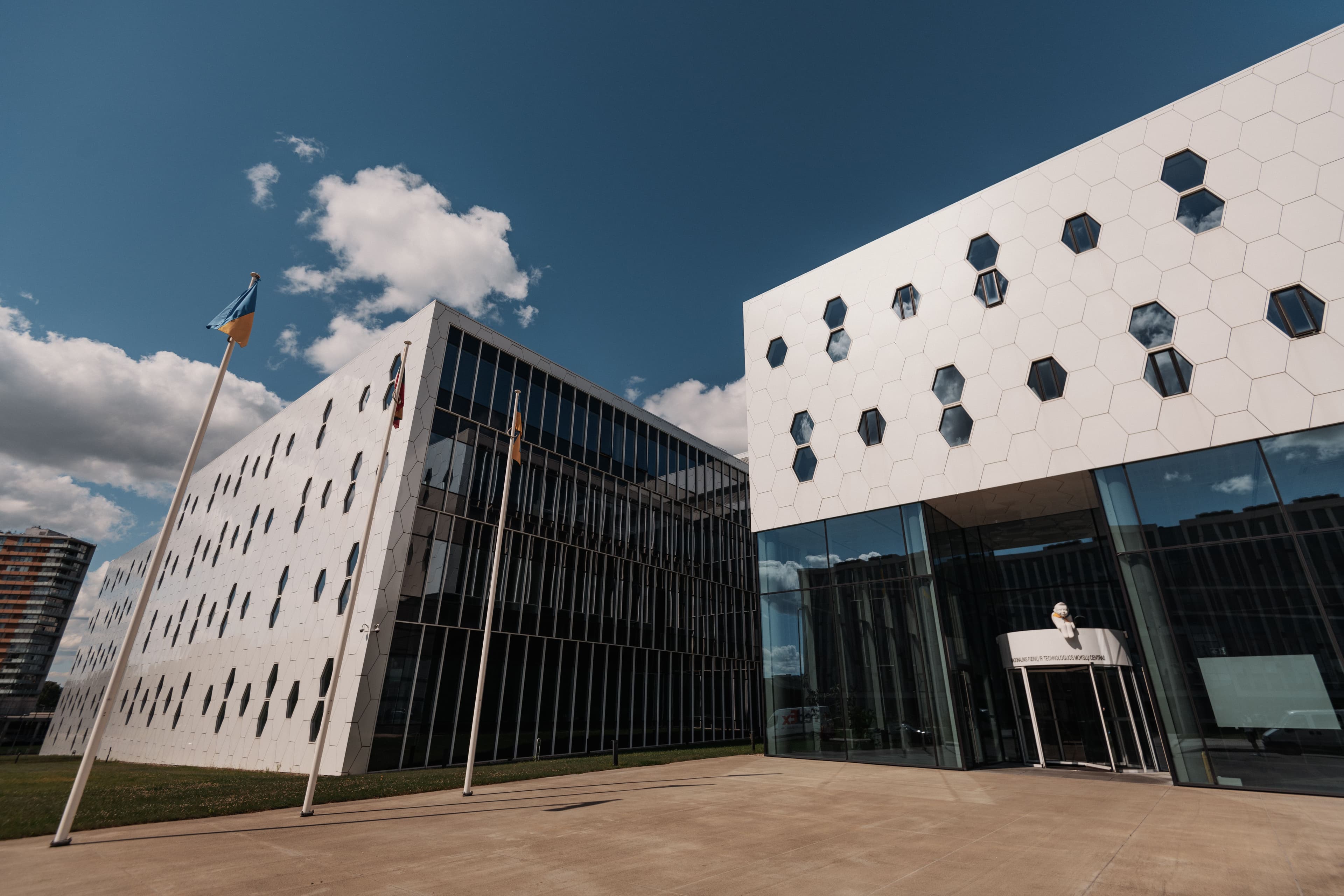
Photonics and Nanotechnology
On this Master's programme, you will gain in-depth knowledge of semiconductor photonics and nanotechnologies. You will master the physics, fabrication and characterisation of organic and inorganic solid-state light sources, solar cells, sensors and hybrid devices. The programme boasts a strong track record of successfully placing graduates in high-tech industries and PhD programmes in Lithuania and abroad.
- Hands-on experience in creating and applying light technologies
- Modern scientific laboratories
- Courses delivered by world-leading scientists
- degree of Master of Technological Sciences
- Faculty of Physics
- 2
- Technological Sciences
- Materials Technology
- 120.0
- Full-time
- English
Learn about the structure of the study programme.
Entry qualification
Undergraduate diploma (or higher)
N. B. for non-EU/EFTA applicants: The gap since your completed Bachelor degree should not exceed five years.
Completed university bachelor’s degree studies in the fields of physics or chemistry of the physical sciences study field group, the field of biochemistry or materials technology and biotechnology field of the technological sciences study field group, the field of electronics engineering or other studies closely related to the aforementioned fields; In the diploma supplement.
No less than 60 per cent of the volume of course units taken shall be in the fields of physics, mathematics, electricity, electronics, optical engineering, materials technology, nanotechnologies; the cumulative grade point average of these course units shall be no lower than 60 per cent of the maximum possible grade.
All course units must be passed (positively assessed); additional points shall be awarded for scientific publications supported by bibliographic links and presentations in scientific conferences in the fields related with the study programme.
Additional points could be obtained for scientific publications and scientific conference presentations in the fields relevant for the study programme as proved by the bibliographic references.
The candidates who meet the above-listed criteria will be invited to a remote motivational interview. During the interview, the candidate’s determination to study in a science-based Master’s degree programme is assessed. If the interview is deemed unsatisfactory, the candidate will not be invited to study.
The entry qualification documents are accepted in the following languages: English / Lithuanian.
Often you can get a suitable transcript from your school. If this is not the case, you will need official translations along with verified copies of the original.
Translation is considered to be official when it is bound together with the certified true copy of the original document and is confirmed by the translator’s signature. Documents issued in English, Lithuanian must be certified true copies and do not require translation.
Language qualification
Other requirements
A motivation letter must be added to your application.
Territory requirements
Applications are NOT accepted from the following territories (based on citizenship): Bangladesh, India, Nepal, Pakistan, Russia.
The programme has reached its limit of applications from Bangladesh, Pakistan, Nepal, India and Russia.
1
2
3
4
5
6
7
- Advanced photonics and nanotechnology expertise to understand, develop, and apply modern technologies while generating and implementing new ideas.
- Industry-ready optoelectronics skills to work with the latest scientific advances and integrate them into real solutions within industrial companies.
- In-demand technology focus on organic and inorganic solid-state light sources, solar cells, photovoltaics, and other key areas of electronics and optoelectronics.
- Innovation and product creation to develop market-competitive products and lead innovative high-tech projects.
- 6 500 EUR for non-EU students / 5 641 EUR for EU students
Tuition fee
Students who are citizens of the European Union, the European Economic Area countries and of other foreign countries, admitted to non-state-funded places in the first year of first-cycle and second-cycle studies through the University’s foreign student application system, must pay the annual tuition fee within 15 calendar days from the date of the offer to study.
After the student pays the tuition fee, he receives the final acceptance letter. Then our International Relations Office provides the necessary information related to obtaining a temporary residence permit in Lithuania and sends a mediation letter to the student by e-mail (for non-EU citizens).
Application fee
The application fee is €100 per application. Each applicant can choose up to three programmes within one application.
Online applications will only be processed once the application fee has been paid.
Please note that the application fee is non-refundable. Make sure you read the admission requirements and deadlines carefully before submitting your application, as the fee cannot be refunded if you are found to be ineligible or miss a deadline.
Scholarships for Master's





